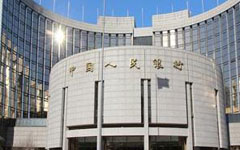Reforms will enhance growth potential
Updated: 2014-02-19 07:05
By Ma Jun (China Daily)
|
|||||||||||
Since the beginning of December, the MSCI Emerging Markets Index has declined 13 percent. The sell-offs in many emerging markets, especially Turkey, Argentina and Brazil, were triggered by their sharp currency depreciation as a result of the United States' tapering of its quantitative easing, as well as market fears of an external debt crisis, for example in Turkey; the negative impact of local rate hikes, for instance in Brazil and India; inflation in Argentina, Brazil, India, Russia, South Africa; and potential economic contractions, as well as political instability in Turkey and Thailand.
|
 |
|
 |
However, this is a question no one in the Chinese government is talking about, simply because there is no need to.
This market perception of China is wrong. China's economic fundamentals are much healthier than most other emerging markets and China is one of the least vulnerable emerging economies to the US' tapering.
First, compared with other emerging market currencies, China's currency has been the most stable in the past weeks, and it will likely remain stable. Based on past experience, the renminbi should remain one of the currencies that is most resilient to external shocks this year, given that its capital account is still largely controlled for portfolio flows and the macro fundamentals are very supportive of the currency. The renminbi is likely to appreciate by about 2 percent against the US dollar this year, although a modest increase in its flexibility is possible.
Second, the macro fundamentals are much stronger in China than in many other emerging economies. China's GDP growth was 7.7 percent in the fourth quarter of last year, higher than the 7.5 percent annual target, and its volatility was within 0.2 to 0.3 percentage points on a year-on-year basis in the past few quarters. Its consumer price index inflation was 2.5 percent in December and will likely remain around 2.5 percent for the coming few months, representing the most stable period in history. Its current account maintained a healthy surplus of about 2 percent last year and will almost certainly stay in surplus this year. External debt is 8.8 percent of GDP. These data compare very favorably with many other emerging markets that experienced significant growth deceleration, large current account deficits, and higher inflation.
Related Stories
New opportunities for the world 2014-01-27 08:26
Reforms will result in fairer competition in China 2014-01-25 10:49
Reforms to bring further growth, experts say 2014-01-24 00:56
Wide measures to maintain financial stability 2014-02-11 07:17
China reveals 2014 financial reform priorities 2014-01-26 10:36
China's reforms to 'revolutionize' financial market 2013-11-15 14:54
Today's Top News
Snowden elected rector at Scottish university
Beijing open for 'equal' dialogues
Hainan vice-governor under probe
FDI inflow rises 16.11% in January
Student sentenced to death for poisoning roommate
Renzi given mandate to form new Italian gov't
Ukraine's amnesty law takes effect
Xi calls on leaders to carry out new reforms
Hot Topics
Lunar probe , China growth forecasts, Emission rules get tougher, China seen through 'colored lens', International board,
Editor's Picks

|

|

|

|

|

|





